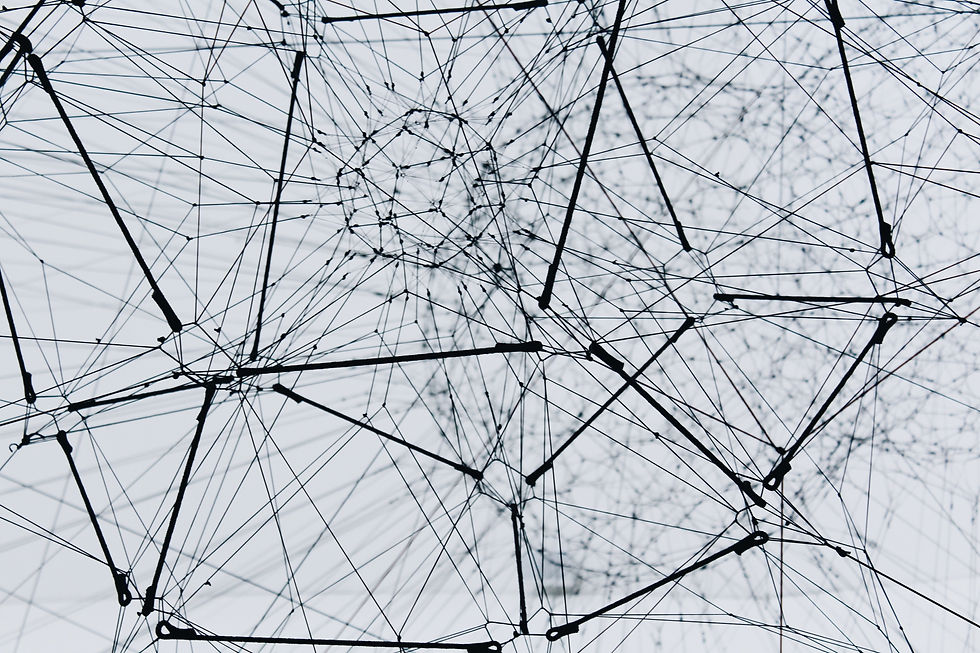Reflecting On My First UX Design Project
- graham chalfant
- Oct 15, 2023
- 3 min read
After finishing my first UX case study, I paused to reflect on things I wish I had done differently. This article is my space to analyze, learn, and share those experiences with you.

My First UX Case Study:
My UX Background:
I enrolled in the Google UX course because of my interest in tech and design. The course allows me to scratch a creative itch and learn about the design behind apps I use daily. In addition, I want to learn more about product management and UX careers.
About 70% of the way into the course, I was promoted at my full-time job to a leadership position, so I paused my coursework. I am returning to my UX work a year later, equipped with new life experience and perspectives.
Things I will do differently in my next UX project:
Goal setting: set a clear goal and try to not change it unless necessary
Project management: map out major steps in the design process
Pay attention to arising opinions and biases during user research and usability studies
Project scoping and goal setting
For one of the first projects I lead as a manager, I did not receive clear direction regarding our goal, so I also gave my team a directionless plan. As expected, the project was Indirect and not actionable. I have learned lots about setting a clear project goal and working with non-technical teams to translate their ask into a technical problem statement. For me, it's all about being transparent and sometimes asking seemingly silly questions. Do not hold back. Voice all your concerns. Ensure every question you have is answered.
Looking back on my first UX project, I realized I changed my portfolio project prompt five times! While all prompts were in the nutritional delivery app realm, they were different. I would accelerate in one direction, change my prompt, pivot, and lose all my momentum. Also, most of my previous work did not align with my new prompt, so my entire portfolio project lost its smooth development timeline. Setting clear goals is incredibly important. Build a solid foundation, or the building will collapse.
Project Management
As an analyst at my job, I could take a task on and complete it before the next one appeared. As a manager, this did not fly. I drowned for ~ 3 months as I tried to balance numerous tasks and projects and learn to delegate at the same time. I dedicated my free time to project management youtube videos and building out project trackers in Notion. Since then, I have realized that I am not only organized, but smaller tasks typically are completed faster and are of higher quality. I have relized context is key. Understanding how a task/project fits into a the larger deliverable is invaluable. It allows you to complete your current work in a way where it will fit snugly with the next step.
I worked on each part of my first UX project as if they were independent. I wish I skimmed all sections beforehand to know what was coming. Instead, I finished each section in a way that made jumping to the next complicated. My wireframes were high-fidelity designs. What I mean is I spent way too much time designing them, which meant each subsequent part required more effort. This misstep was partially because I tried too hard and also because I didnlt relize how many times I would iterate upon my initial designs.
Meditation and UX Research
I meditate because it makes me less unhappy. I have meditated for 6 years, and only in the last year have I noticed profound changes in my wellbeing. Sam Harris’s app, Waking Up changed everything. He changed the way I view meditation. You can meditate in a construction site. All you are trying to do is focus your attention on what is currently happening - live in the moment.
During my user research and usability studies, I noticed my own opinions and biases appear like any other experience; cool air on the skin, someone shouting, or some kid kicking you in the shin…. For example, I actually caught myself tuning out when receiving feedback I did not agree with. This awareness was exciting and I actually leaned in more to understand the users point of view. I feel more aware of thoughts and feelings, allowing me to catch them before they alter my perception of an experience. I had this relization after many user interviews. In my next project, I plan to pay more attention to my opinions and biases as they arise.
Future Plans
I am planning on finishing the UX course, which includes two additional projects. I am excited to apply the insights I have uncovered from my first project. Hopefully, my next reflection will be a lot shorter!






Comments